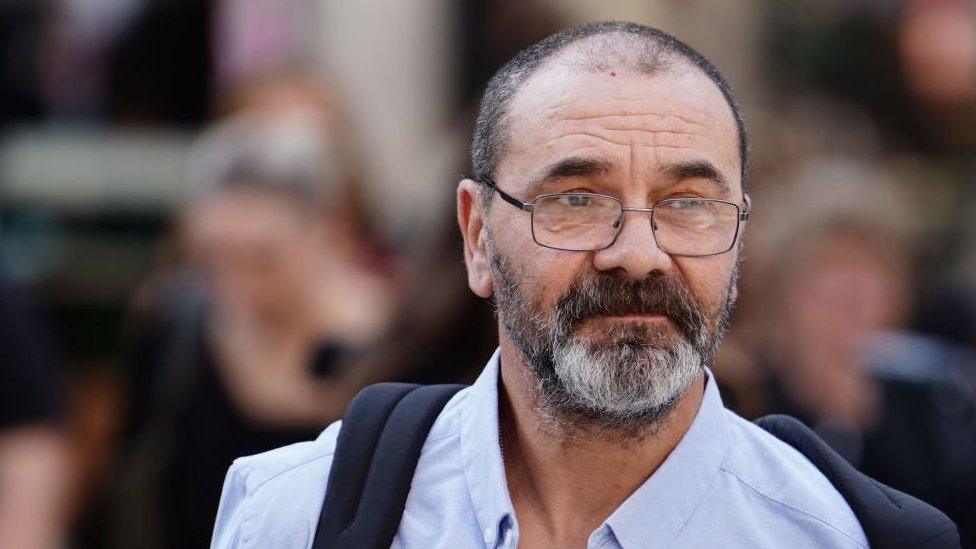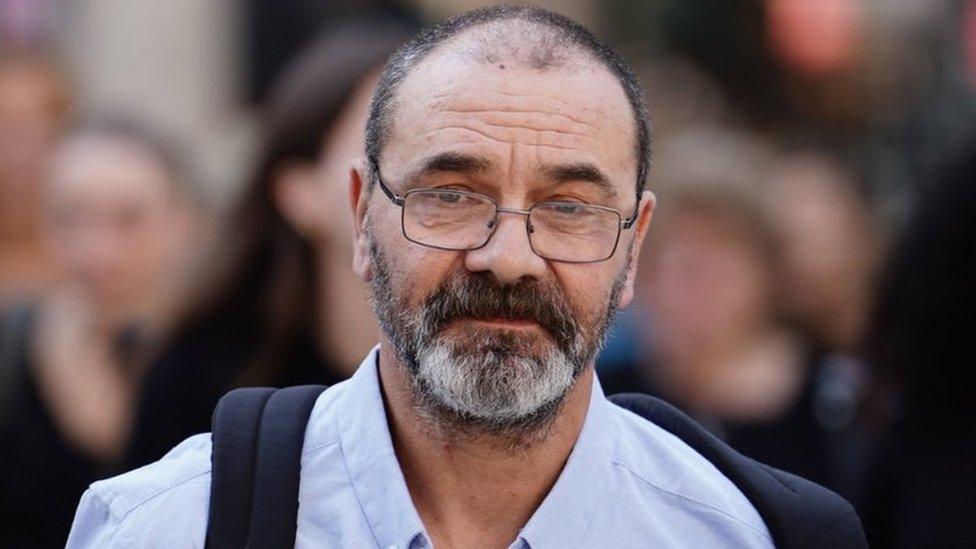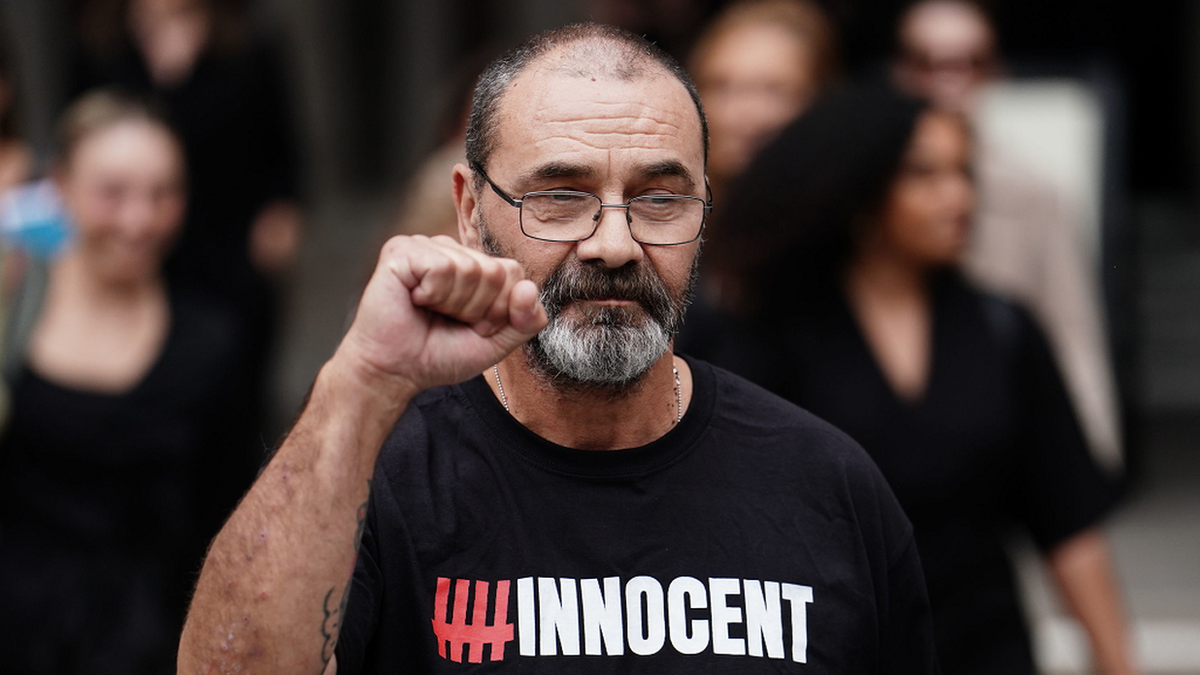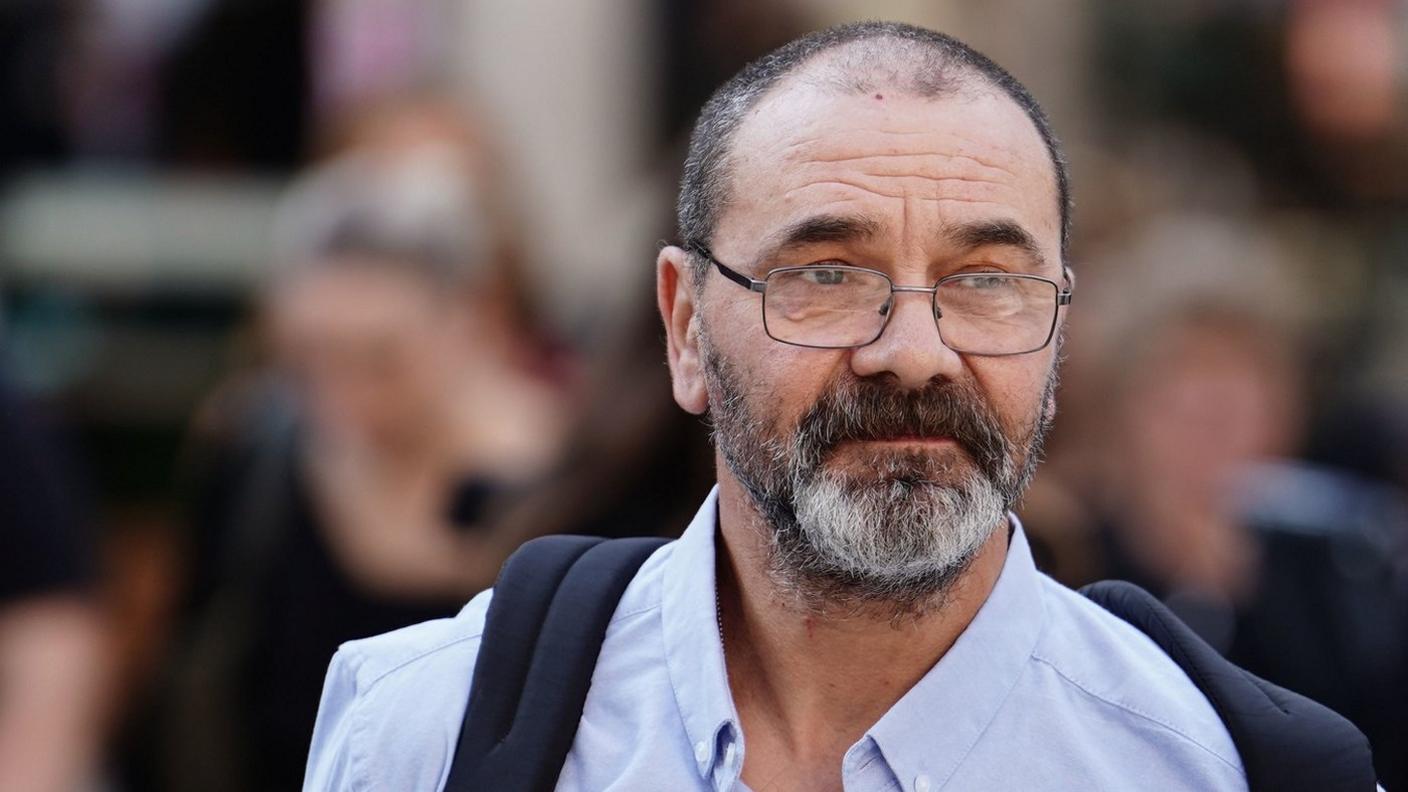Andrew Malkinson: Calls for inquiry into wrongful rape conviction
- Published

Calls are growing for a public inquiry into the case of Andrew Malkinson, who spent 17 years in prison for a rape he did not commit.
DNA implicating another suspect in the crime was found just three years into his jail term, BBC News has learned.
Former Crown Prosecution Service (CPS) director Lord Ken Macdonald described the case as a "whole system failure".
Ex-Justice Secretary Sir Robert Buckland said "all agencies involved in this have some explaining to do".
Mr Buckland told BBC Radio 4's World At One programme that he was "deeply concerned and rather shocked" at revelations about the existence of DNA evidence in the case.
Calling for an inquiry, he said: "Clearly, this latest revelation is startling to say the least. Shocking, which is why I think we need to get to the bottom of this - not just for the sake of this case and Mr Malkinson but for any other cases that either might be out there or might be to come."
Mr Malkinson, 57, was found guilty in 2004 of raping a woman in Greater Manchester but always maintained his innocence.
He was eventually released in 2020 but remained on licence as a registered sex offender until his conviction was finally quashed last month at the Court of Appeal.
In July, judges said DNA evidence pointing to another man's involvement in the attack cleared Mr Malkinson's name after his long legal battle.
But case documents seen by BBC News show that all the key agencies involved in the case knew of this exonerating DNA by 2009, which first emerged two years prior.
The CPS has insisted this was not "ignored" and was handed to Mr Malkinson's defence team.
Greater Manchester Police has already apologised for its handling of the investigation, admitting that Mr Malkinson was the victim of a "grave miscarriage of justice".
Now senior legal figures say a formal inquiry is needed to establish where the fault lies for Mr Malkinson's wrongful conviction.
Watch: Andrew Malkinson speaks to Radio 4's Today programme about his first night of freedom
Lord Garnier, who was solicitor general from May 2010 to September 2012, expressed "jaw-dropping shock" over failures in the case.
He told the BBC's Radio 4 Today programme: "It seems to me that what we need now is complete and utter disclosure, public disclosure, of every document that relates to this case, save those which if disclosed would impede the prosecution of a new suspect.
"And there should be a public inquiry which should reach conclusions about what went wrong, who knew what and when, within a sixth-month period."
Lord Ken Macdonald, who was director of public prosecutions between 2003 and 2008, told the BBC: "It's a perfect storm of injustice - everything that could have gone wrong went wrong.
"This is a whole system failure which is why we need a public inquiry."
Barrister Michael Mansfield described the case as a "catastrophe" and pointed to other issues with the case beyond the DNA evidence, including the credibility of the witnesses who detectives relied on and the rules around identification parades.
He said the "whole of this case indicates a very basic malaise and rottenness at the system".
Mr Mansfield said he supports calls for an inquiry, adding: "However I don't want one that lasts six years. This has got to happen quickly, a rapid response to this - because there are other people sitting in jail."
A CPS spokesperson said: "It is clear Mr Malkinson was wrongly convicted of this crime and we share the deep regret that this happened.
"Evidence of a new DNA profile found on the victim's clothing in 2007 was not ignored. It was disclosed to the defence team representing Mr Malkinson for their consideration.
"In addition, searches of the DNA databases were conducted to identify any other possible suspects. At that time there were no matches and therefore no further investigation could be carried out."
Related topics
- Published27 July 2023

- Published16 August 2023

- Published7 August 2023
